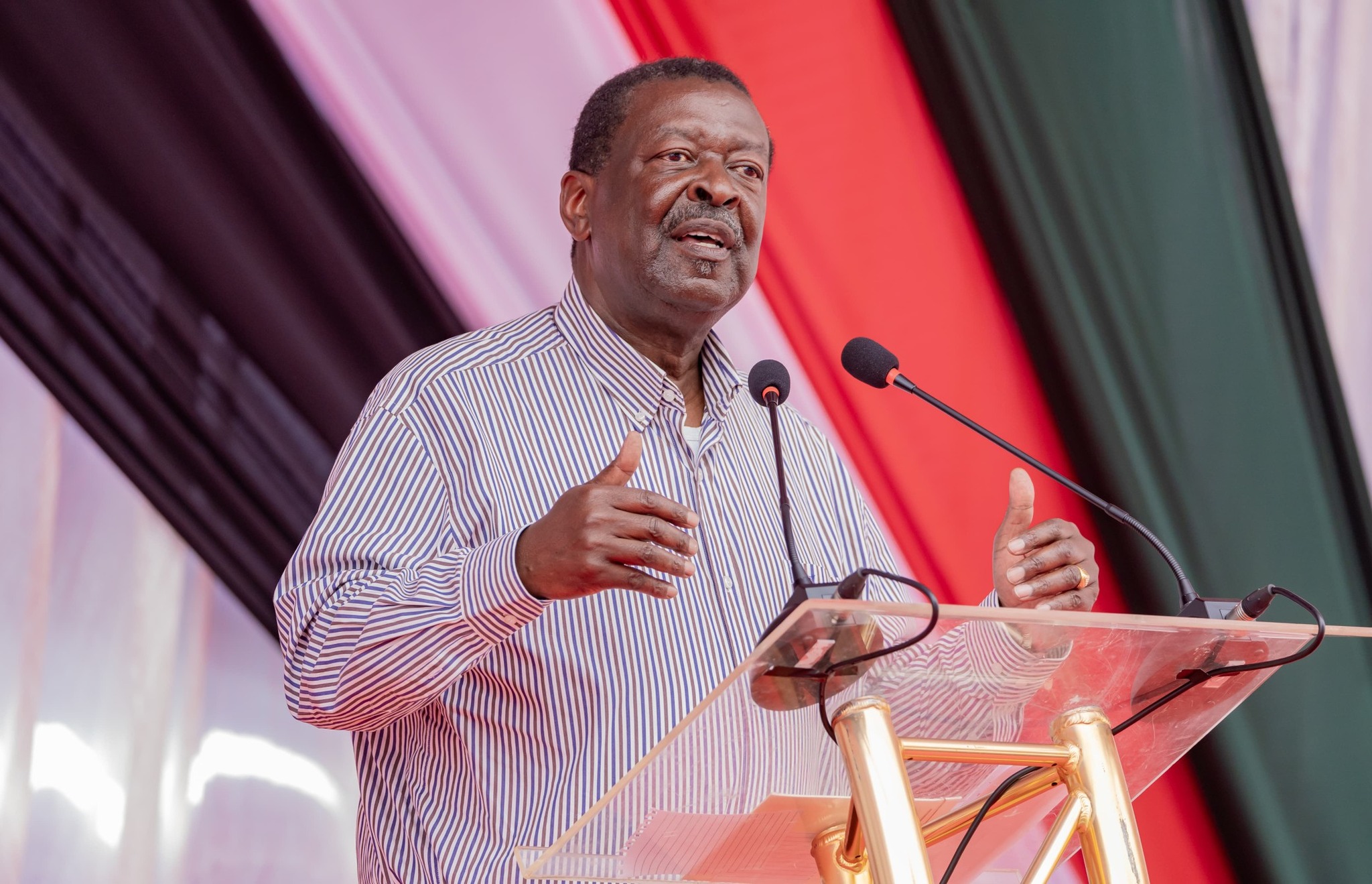

Kenya remains a steadfast ally of the United States Prime Cabinet Secretary Musalia Mudavadi has said, in a bid to reassure the nation and international partners.
Musalia’s affirmation comes as a proposed bill in the US Senate threatens to revoke the country’s major non-NATO ally (MNNA) status over its trade relations with Iran and Russia.
Speaking to lawmakers on Thursday, Musalia dismissed claims that Kenya’s diplomatic ties with Tehran and Moscow warranted alarm.
He maintained that the nation was merely exercising its sovereign right to pursue economic opportunities for its farmers and traders.
“There is a misrepresentation around some of these issues,” he told the Regional Integration Committee chaired by Nominated MP Irene Mayaka.
“Kenya is a sovereign state and must be free to engage with any nation in the interest of its people,” the CS asserted.
The controversy stems from a bill introduced by US Senator Jim Risch, which seeks to reassess Kenya’s designation as a MNNA. The bill, among others, cited Kenya’s trade engagements with China, Iran and Russia and alleged links to rebel groups in Africa.
But Musalia was quick to clarify that the concerns were not raised by the US executive branch but by a single senator.
He emphasised that neither President William Ruto nor himself had made official visits to Russia or Iran, countering insinuations of shifting geopolitical allegiances.
“On what basis is this review being conducted?” he asked, dismissing politicians exploiting the country’s diplomatic challenges for political gain.
Former Deputy President Rigathi Gachagua has been vocal about the US bill question.
Musalia urged unity and downplayed fears that Kenya was “under siege” diplomatically, framing the MNNA review as part of routine legislative scrutiny rather than a punitive measure.
He revealed that during his recent visit to Washington, he held discussions with US Secretary of State Marco Rubio and other officials to clarify Kenya’s position.
“This is not the time to politicise partnerships. The US has even extended support for Kenya’s peacekeeping mission in Haiti, which shows the strength of our relationship,” he said.
“Let's be measured when talking about these issues. There is an effort to create the impression that Kenya is under siege or attack. We are not under siege but just doing our job.”
Kenya, he pointed out, has long been a beneficiary of favourable US trade terms, but the country must also diversify its markets.
“Iran is a major buyer of Kenyan tea. Our farmers need markets—whether in the US, Europe, or elsewhere.”
The Prime CS also addressed the looming expiration of the African Growth and Opportunity Act, a US trade preference programme for African exports.
With Agoa set to lapse in 2025, he noted that Kenya was already in bilateral talks with Washington to secure a new trade framework.
“Agoa was an incentive for all African nations, but if the US is not renewing it for everyone, then each country must negotiate its own terms,” he said.
“We are engaging the US on how to structure future trade relations, including discussions on tariffs.”
Khwisero MP Christopher Aseka also gave little weight to the issue, calling it a “normal petition,” but Makali Mulu warned against complacency.
“We shouldn’t downplay the US question,” Mulu said. “We must set irreducible minimums rather than handle our neighbours with kid gloves.”
But Musalia reminded MPs of the country’s pivotal role in East Africa and stood firm against calls for Kenya to retaliate against its neighbours over trade restrictions hurting small businesses.
“We are the region’s largest economy and a key trade hub. Our policies must reflect our economic realities.”
Instead, he emphasised diplomacy as the government’s preferred approach in resolving disputes, even with Tanzania, which has recently imposed stringent measures on Kenyan traders.
“We cannot go ruffling feathers and antagonising our neighbours,” Musalia told MPs. “If there are issues, we must resolve them diplomatically.”
One of the contentious issues raised was the long-standing dispute over Migingo Island, a tiny rock in Lake Victoria claimed by both Kenya and Uganda.
Musalia assured the committee that technical teams from both countries were working to resolve the matter.
However, lawmakers expressed frustration over the perceived unfair treatment of Kenyans in neighbouring countries.
Mayaka demanded to know why Kenya was being lenient with Tanzania and other EAC countries, yet they do not respect the reading bloc.
“We need to tighten the knobs if they do not reciprocate. We should also consider revoking their citizens’ working permits in Kenya,” the committee chair said.
Kipipiri MP Wanjiku Muhia cited the case of Martha Karua, who faced entry restrictions in Tanzania, while Tanzanian traders operate freely in Kenya.
“Why open for outsiders to take away opportunities for our youth?” she asked.
Kimilili MP Didmus Barasa echoed her concerns, arguing that Kenya had been too permissive.
“I don’t see the problem with Tanzania’s position on who can invest there. We need to find out how many foreigners are doing business in Kenya, taking opportunities from our people.”

















